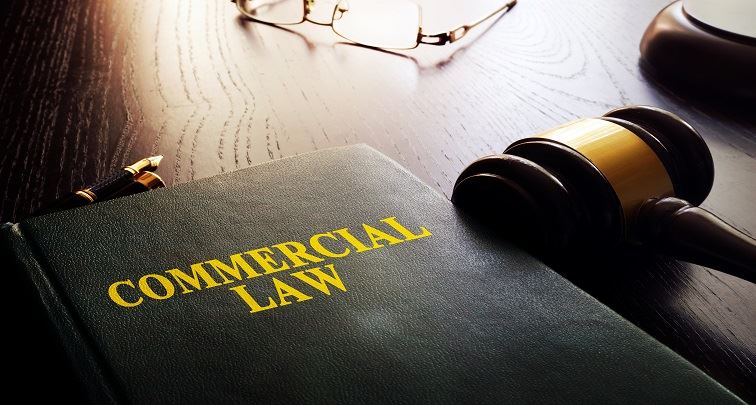Dispute in commerce has a major part to play in the maintenance of commercial order, which has deep roots in resolving the conflicts that arise in business. The rules of commercial disputes law help in maintaining commercial order and are important for the business society.
This is a guide on resolving commercial disputes law, its procedures, and the practice of these methods.
Why Is Commercial Disputes Law Necessary?

Commercial disputes law involves the regulation of legal disputes between businesses and other businesses or businesses and third parties.
The differences in these cases are mostly the following:
- Breaking the contract
- Disagreements about rentals in commercial properties
- Tickets of the dispute over the attraction of investments or the contrary
- Violations of intellectual property
- Operating and administrative disputes in joint ventures
This is a specific part of the civil law, and it requires a great deal of knowledge regarding legal rules and business operations.
Common Types of Commercial Disputes
The reasons for conflicts that are under the law of commerce in disputes are numerous, but can be divided into several basic themes:
- Contract breaches: A violation of the agreement, like a failure of the obligation, a lack of a signature, or a lack of a party’s participation.
- Dissolution of business relationships: The parties are primarily in dispute if they disagree about their responsibilities or the division of profits.
- Foul play in market competition: Business practices that break the regulations of the trading market.
- Unauthorized use of intellectual property: It is the use of others’ patents or trademarks without the owner’s permission.
- Non-adherence to fair trade: Trade practices that are not in conformance with the prescribed regulations at the time of their use.
- False representations in business: Lies about the product, or false information when selling a product.
- The illegitimate act of terminating a contract without a cause
- Fraud or misrepresentation: Wrongful statements in the course of online or other business transactions.
For a company, the understanding of why fraud occurs can aid them in the prevention and management of conflicts more effectively.
The Role of Commercial Disputes Procedural Law
The central part of the commercial disputes law is the commercial disputes procedural law. This specific sector of law defines the process by which commercial cases are solved judiciously.
Here are the rules as to:
- Filing and serving claims
- Jurisdiction and venue
- Discovery and disclosure
- Evidence admissibility
- Appeals process
These procedures guarantee that justice is done and all commercial dispute involving parties have their rights duly protected.
Commercial Dispute Resolution: Key Methods
The law on commercial disputes has no fewer than several options for resolving disputes.
These consist of:
1. Litigation
Routine legal steps that involve the courts are regulated by procedural laws and are often used when the parties cannot solve the conflicts between themselves.
2. Arbitration
It is a decision-making process where an unbiased arbitrator decides the verdict, This method is used in commercial disputes law for most international business transactions.
3. Mediation
A process of negotiation, in which a neutral third party – a mediator – helps parties negotiate a mutually acceptable agreement.
4. Negotiation
The process of sitting face-to-face with the sole intention of discussing and trying to find a solution to the subject matter, without involving a third party, often serves as the first step in conflict resolution.
The regulations and local customs in commercial disputes law that are part of some methods ensure that these methods are legitimate and enforceable.
The Role of Agreements in Preventing Commercial Disputes

One of the main tenets of the law on commercial disputes is properly designed contracts. They immediately specify every party’s responsibilities, and thus assist in preventing confusion.
Elements that are usually included are:
- Performance and delivery expectations
- Payment and penalty clauses
- Dispute resolution mechanisms
- Termination clauses
- Governing law (often referring directly to commercial disputes law)
When the contract is solid from the very beginning, a court case is almost halfway avoided, and the resolution of disputes is then clean and straightforward.
Choosing the Correct Forum for Dispute Resolution
In commercial disputes law, the decision on a suitable platform can have a bearing on the results of a case in addition to the time and the expenses involved.
Possible courses of action here are:
- Local courts in the country where jurisdiction is based are suitable for such cases
- Specialized commercial courts for sophisticated business cases
- International arbitration centers like the ICC or the LCIA are used for international disputes
The specified court in a contract’s dispute resolution clause usually conforms to the best commercial disputes law practices.
Putting into Effect Business Verdicts and Awards

A profitable result under commercial disputes law is only fruitful if the enforcement is possible. In many cases, national courts’ judgments are adequately guaranteed through their national structures. The New York Convention governs the process of foreign recognition and enforcement of international arbitration awards.
Some aspects of implementation to take into account include:
- The place where the property/assets are located
- The legal force of the foreign judgments
- Any local formalities
Legal Representation in Commercial Disputes
Law specialists who focus on commercial disputes help bring in a set of in-depth knowledge, without which the discussions would not be resolved.
The consultants are assigned the following tasks:
- Checking the contracts and the law
- Collecting evidence and discovery
- Representing the court and the negotiation
- Managing an appeal
- Implementation of international law
The role of a lawyer as a representative in a commercial dispute can have a remarkable impact on your case in a positive manner.
Trends and Innovations in Commercial Disputes Law
The commercial disputes law field is not static. Innovations, together with new trends, such as those that promote the use of technology, are redefining how companies solve their legal issues:
- ODR or Online Dispute Resolution: Businesses go to the internet to find more efficient ways to end their differences.
- AI in legal research: The tools of machine learning are employed to delve into the issues of past cases and to decide which is more favorable to the clients.
- Inter-jurisdictional collaboration: The issue of increasing international business asks for the making of laws that complement each other.
- Third-party litigation funding: An allocated sum is offered by external investors who fight for their rights in return for a share of the compensation.
With these trends, commercial disputes law will become more accessible and efficient.
Conclusion
In the present high-speed business world, commercial law on disputes acts as a crucial shield for business interests.
It is a means by which the industrialists can move forward with business transactions, and if a problem arises, the agreements they have made can be the final authority on how to proceed.
Through the comprehension of the law and the effective use of ADR methods in commercial disputes, and also the assistance of an experienced legal adviser, organizations can better handle the situation and reduce the risks involved.
Understanding the legal ecosystem and its various sectors of practice will enable businesses to develop a step-by-step plan of action for not only their legal representations but also for the mediation, negotiations, and arbitration of disputes that are cyberspace-based, transboundary, as to jurisdiction.
Even if you are typing a contract or solving a difficult international arbitration, a good knowledge of commercial disputes law is necessary.
FAQs
What is commercial disputes law?
The legal domain of commercial disputes law deals with the disputes among companies or between companies and third parties. The arena of commercial disputes includes regulations for both solving disputes and enforcing decisions.
What are the common resolution methods under commercial disputes law?
Typical methods include litigation, arbitration, mediation, and negotiation. Each has its advantages and is recognized within the framework of commercial disputes law.
Why are contracts important in avoiding commercial disputes?
Contracts reduce uncertainty by clearly defining obligations, rights, and how disputes will be handled. They often refer to commercial dispute law to ensure legal enforceability.
Can arbitration be enforced internationally?
Yes, arbitration awards are enforceable in over 160 countries under the New York Convention, making it a popular tool in commercial disputes law for international matters.

